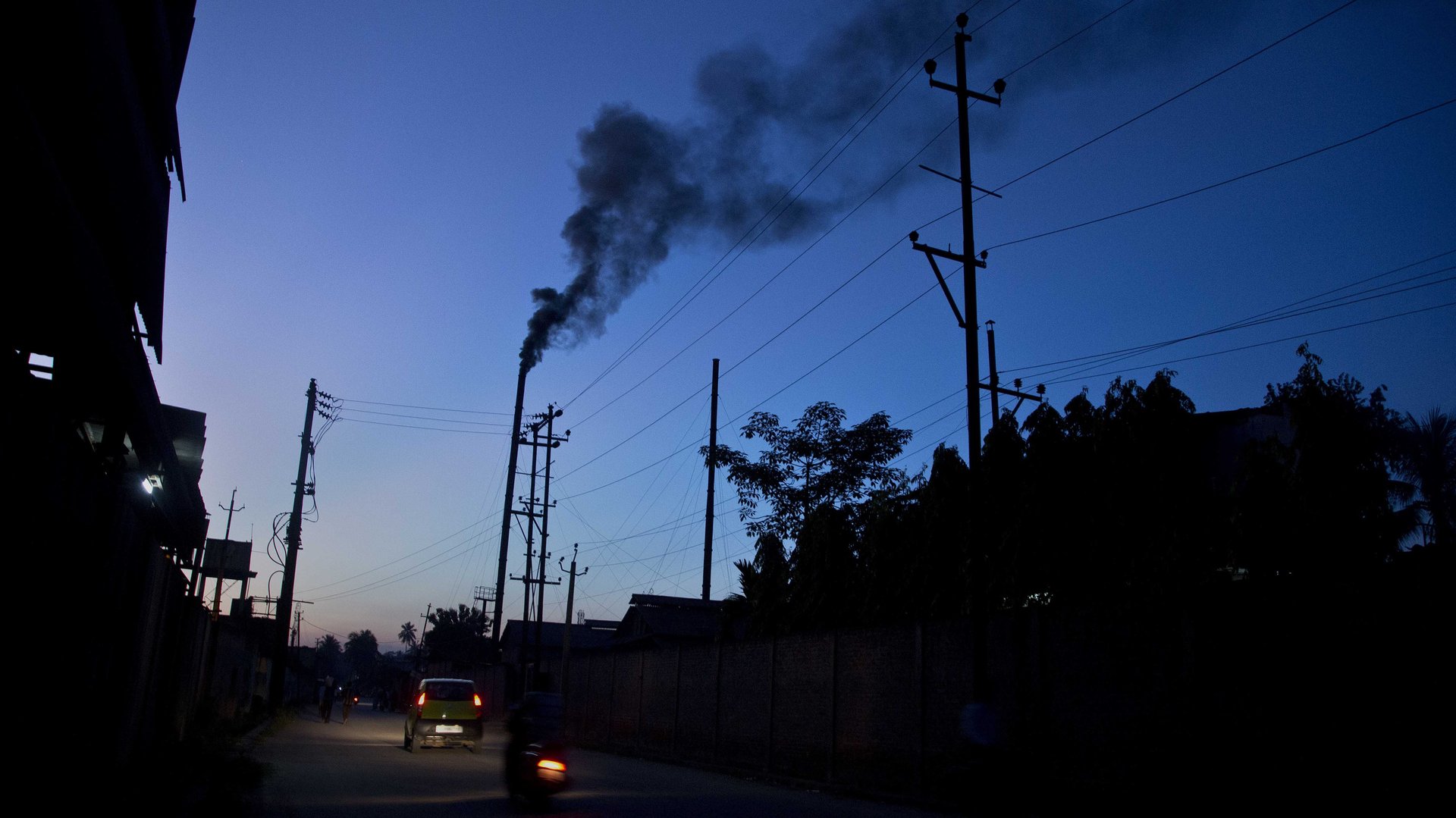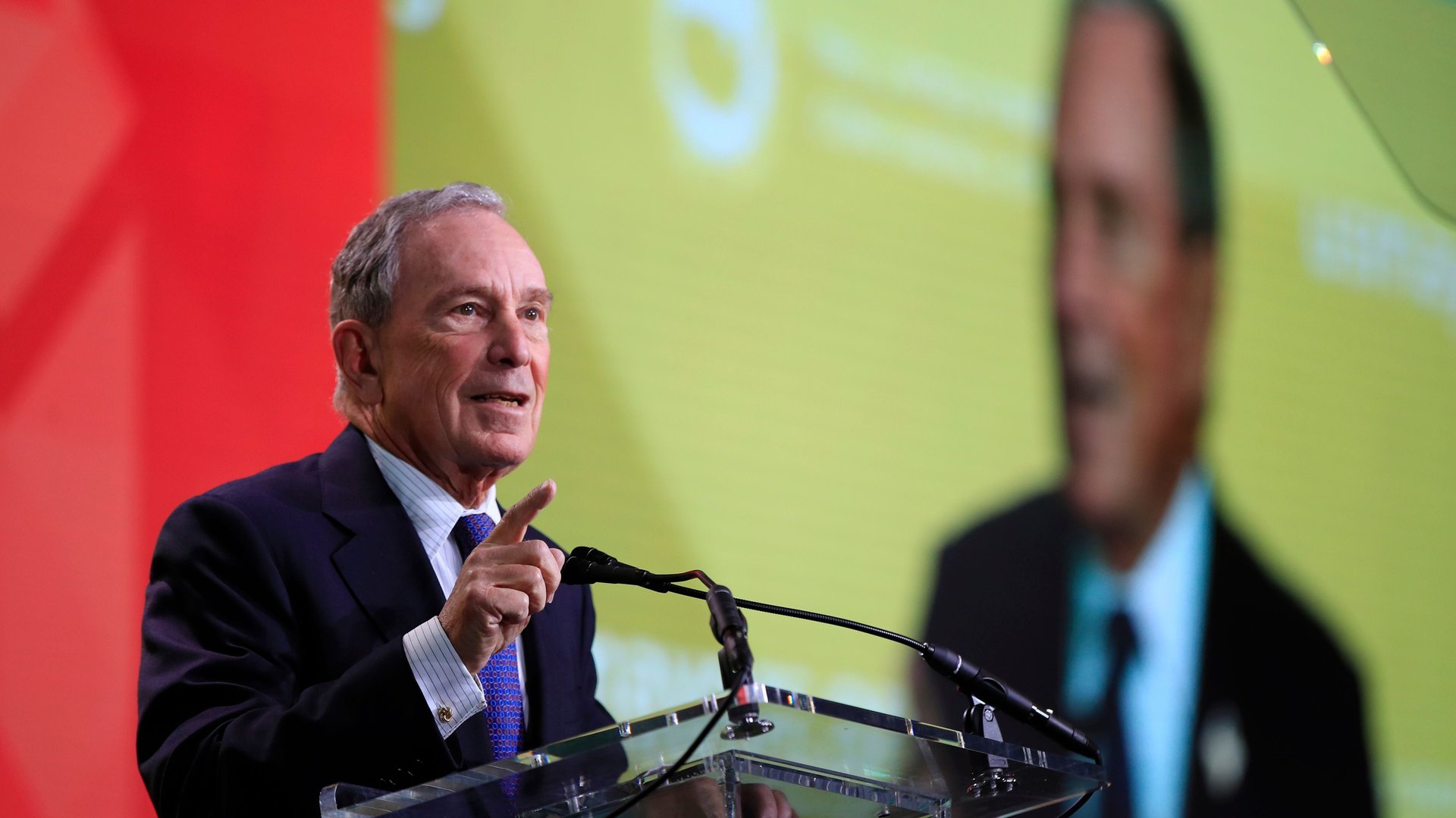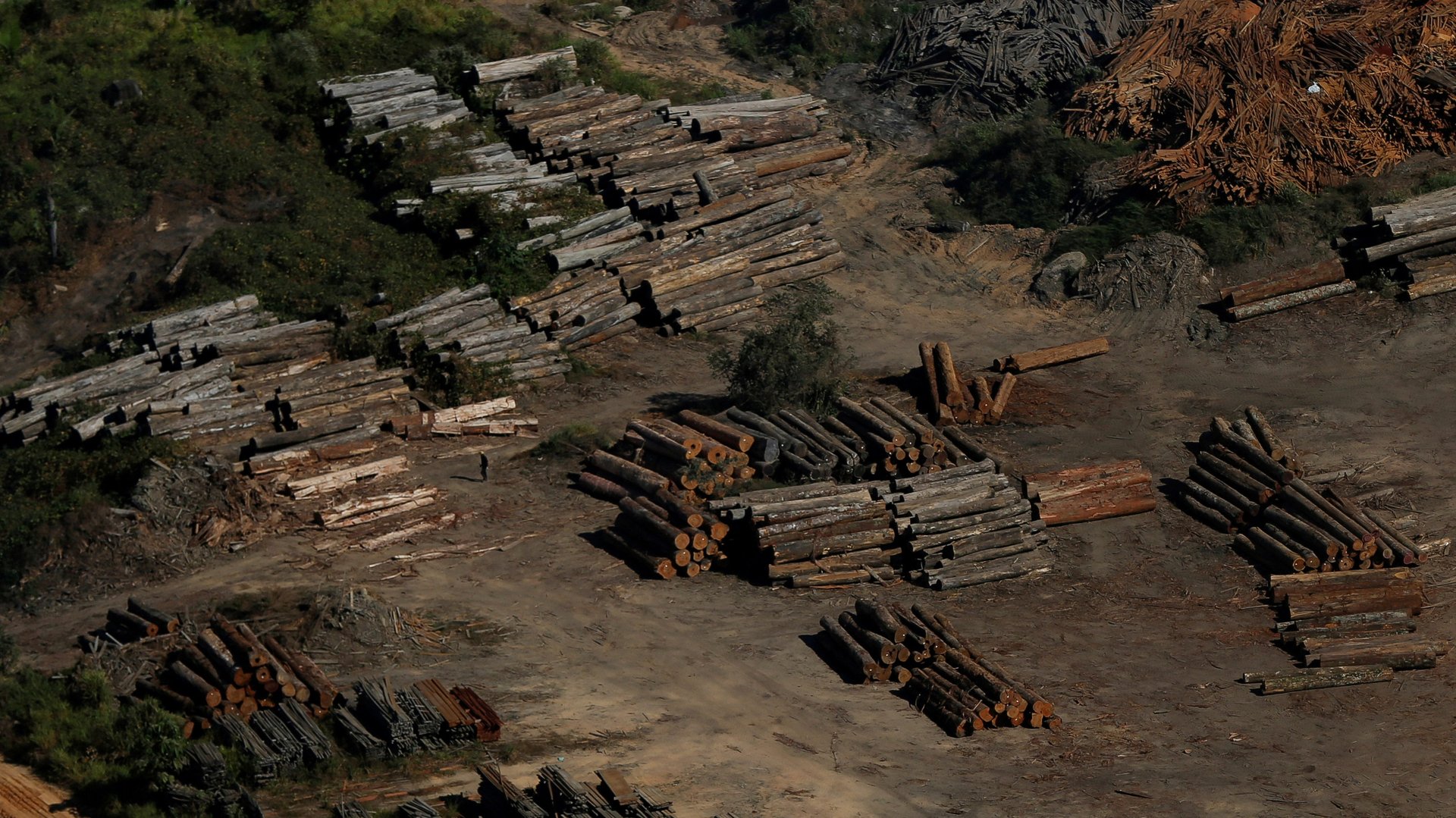The Race to Zero Emissions: The bowhead whale edition
Hello Quartz readers!

Hello Quartz readers!
On Thursday, a few of us met up in a restaurant near the Seattle waterfront. We talked about the state of environmental journalism, debated the future of carbon-capture technology, and then imagined what the world would have looked like today if countries had signed a binding treaty at the first UN climate meeting in 1992. It was a lot of fun!
Can we do this in San Francisco too? I’ll be there next week to attend the Breakthrough Dialogue. If you won’t be coming to the conference and would still like to meet, let me know.
Now, let’s get back to the race. Here’s what happened over the past week that helped or harmed the world’s chances to cut greenhouse-gas emissions to zero.

🔽 Decreases emissions
1️⃣ India launched the world’s first trading platform for particulate emissions. The program will run in Surat, Gujarat and involve 350 industrial plants. Starting Aug. 1, the total amount of particulate matter from each plant that can be emitted will be capped. Those who perform better can sell credits to those who perform poorly.
2️⃣ Two European countries are setting their eyes on net-zero emission targets. Finland’s incoming prime minister published a coalition deal to take the country to carbon neutrality by 2035. The date reflects the responsibility of a rich country in a carbon-constrained world. The UK‘s outgoing prime minister wants to cement her legacy by introducing a bill with a net-zero emissions target for 2050. The bill’s likely to get cross-party support.
3️⃣ For the past decade, Big Oil’s response to the threats of lower demand for oil in the transport sector is to point to an increase in the demand for the chemicals sector, specifically plastics. But McKinsey now thinks that the growing backlash to plastic will increase waste recovery, reuse, and recycling, which could replace projected demand for virgin plastic by as much as 30% by 2030 and 60% by 2050.
4️⃣ The Royal Society for the Protection of Birds, a British charity, shows that protecting and restoring the best places for birds can also help keep more carbon in the soil and perhaps even absorb more from the air. Their analysis focused on the UK, but such co-benefits are likely to exist in many parts of the world.
5️⃣ The renewables roundup: Spain’s largest utility Iberdrola unveiled plans to build the EU’s largest solar plant; the 590 MW facility could satisfy the electricity needs of 375,000 people. Connecticut has raised its ambition to install offshore wind to 2 GW by 2030; combined with New Jersey, New York, and Massachusetts, the region could see 25 GW of offshore wind power built by 2030. And, finally, after natural disasters strike US states, the number of people buying home batteries and solar panels shoots up.
Stats to remember
As of June 6, the concentration of carbon dioxide in the atmosphere was 414.19 ppm. In 2018, CO2 levels jumped 3.5 part per million—a near record. Instead of falling, we continue to accelerate in the wrong direction.

0️⃣ Net-zero (for now)
1️⃣ After deciding not to run in the US presidential election in 2020, former New York City mayor Michael Bloomberg announced he will donate $500 million in the next three years with a goal to close every coal-fired power plant in the US by 2030 and halt the growth in the use of natural gas.
2️⃣ How are countries faring on their pledges under the Paris climate agreement? Mostly not well. None fall in the “role model” category, according to Climate Action Tracker. Morocco and the Gambia are compatible with a 1.5°C pathway. India, Ethiopia, Costa Rica, Bhutan, and the Philippines are compatible with a 2°C pathway. Every other country isn’t doing enough, with the US, Russia, Saudi Arabia, Turkey, Ukraine, and the UAE as the worst offenders.
3️⃣ Major auto companies have written to US president Donald Trump requesting him to go back to the negotiating table on rolling back fuel-efficiency standards. The carmakers had previously asked the administration to make changes to pollution standards, but the administration surprised them with the scope of the recommended changes.
In a whale’s life 🐋
In May 2007, a bowhead whale caught off the Alaskan coast was discovered with the head of an explosive harpoon that was manufactured as early as 1879. Such an event is possible because these whales can live up to 200 years. That’s not great news when the world is losing 10,000 metric tons of sea ice every second. “Some are having to adapt to a modern climate with faculties developed in the Georgian age,” Heather Koopman, marine physiological ecologist at UNCW, told the Guardian. “Things are moving far too rapidly for them to keep up.”

🔼 Increases emissions
1️⃣ In a surprise to no one, the deforestation of the Amazon rainforest has sped up under the leadership of populist president Jair Bolsonaro. The rainforest is a globally important carbon sink and losing the natural habitat will inevitably increase emissions.
2️⃣ Methane emissions from the US industrial sector might be much greater than previous estimates. Cornell University and the Environmental Defense Fund discovered that ammonia production facilities are emitting 100 times the methane than the self-reported estimates given to the Environmental Protection Agency.
3️⃣ The number of home solar installations in the UK fell by 94% in May, after the government scrapped subsidies. It follows the slowdown of new renewable-energy projects, which has led to a reduction in the number of green-energy jobs in the country by about 30% between 2014 and 2017.
4️⃣ The California utility PG&E, which declared bankruptcy following wildfires last year, is planning to cut off power in regions with extreme fire risk. The first of these cuts occurred on Saturday. In the short term, it may cause people to invest in fossil-fuel generators.
If you like this newsletter, do share this link with friends and colleagues. Please send tips to [email protected].